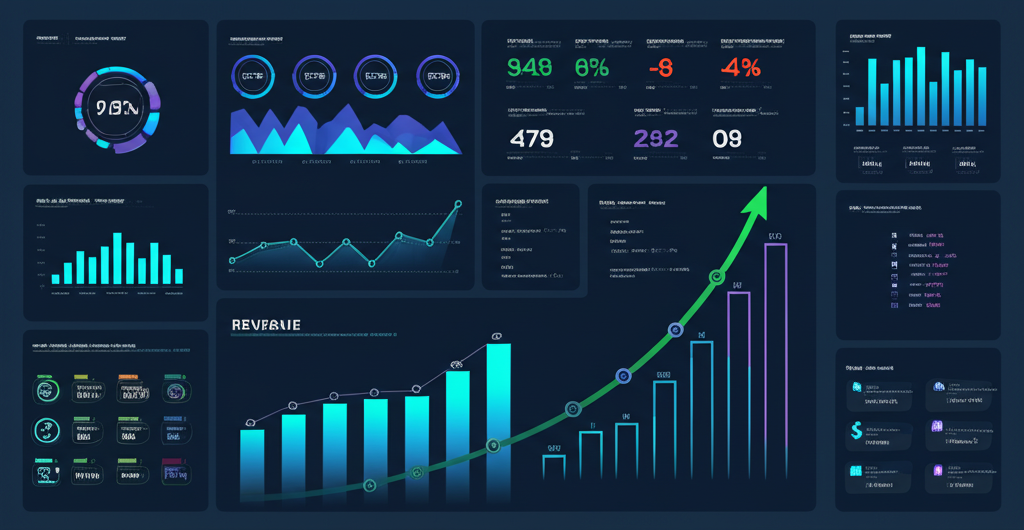First-Time Equipment Financing: A Complete Guide

Securing equipment financing for the first time can feel overwhelming. This comprehensive guide walks you through every step of the process, from preparation to approval, helping you navigate your first equipment financing experience with confidence.
Understanding Equipment Financing Basics
What Is Equipment Financing?
Equipment financing is a loan or lease specifically designed to help businesses acquire equipment. The equipment itself typically serves as collateral, making it easier to qualify than unsecured business loans.
Types of Equipment Financing
- Equipment loans: Borrow money to purchase equipment, own it outright when paid off
- Equipment leases: Rent equipment for a set period with various end-of-term options
- Sale-leaseback: Sell equipment you own and lease it back for working capital
- Equipment lines of credit: Pre-approved credit for multiple equipment purchases
Step 1: Assess Your Equipment Needs
Identify Specific Requirements
- What equipment do you need and why?
- New or used equipment?
- Essential features and specifications
- Expected useful life and maintenance requirements
Calculate Total Costs
Consider all costs beyond the purchase price:
- Delivery and installation
- Training for operators
- Insurance and registration
- Ongoing maintenance and repairs
- Fuel or power costs
Determine ROI
Calculate how the equipment will benefit your business:
- Increased revenue from new capabilities
- Cost savings from improved efficiency
- Time saved on projects
- Competitive advantages gained
Step 2: Evaluate Your Financial Position
Review Your Credit
Check both personal and business credit scores:
- Personal credit score (FICO): Aim for 650+
- Business credit score (Dun & Bradstreet, Experian): Build if possible
- Correct any errors on credit reports
- Address negative items if possible
Assess Cash Flow
- Review 6-12 months of bank statements
- Calculate average monthly revenue and expenses
- Identify seasonal patterns
- Ensure you can comfortably afford monthly payments
Determine Down Payment Capability
- Most lenders require 10-20% down
- Larger down payments may secure better terms
- Consider impact on working capital
- Some programs offer zero-down financing
Step 3: Gather Required Documentation
Business Documents
- Business license and registration
- Articles of incorporation or LLC formation documents
- Business tax returns (2-3 years if available)
- Financial statements (profit & loss, balance sheet)
- Business bank statements (3-6 months)
- Business plan (especially for startups)
Personal Documents
- Personal tax returns (2 years)
- Personal financial statement
- Government-issued ID
- Proof of address
Equipment Information
- Equipment quotes or invoices
- Specifications and model numbers
- Vendor contact information
- Appraisals for used equipment
Step 4: Research Financing Options
Types of Lenders
- Traditional banks: Competitive rates but strict requirements
- Equipment financing companies: Specialize in equipment, more flexible
- Manufacturer financing: Offered by equipment manufacturers
- Online lenders: Fast approval but potentially higher rates
- Credit unions: Member-focused with competitive terms
Compare Key Terms
- Interest rates: APR including all fees
- Loan terms: Length of repayment period
- Down payment: Required upfront payment
- Monthly payment: Ensure it fits your budget
- Fees: Application, origination, documentation fees
- Prepayment penalties: Fees for early payoff
Step 5: Submit Your Application
Application Tips
- Complete all sections thoroughly and accurately
- Provide clear, organized documentation
- Be honest about your financial situation
- Explain any credit issues or gaps in business history
- Highlight business strengths and growth potential
What Lenders Evaluate
- Credit history: Personal and business credit scores
- Time in business: Longer history improves approval odds
- Revenue and profitability: Ability to make payments
- Debt-to-income ratio: Existing debt obligations
- Equipment value: Collateral for the loan
- Industry and business model: Risk assessment
Step 6: Review and Negotiate Terms
Understand the Offer
Carefully review all terms before accepting:
- Total amount financed
- Interest rate and APR
- Payment schedule and amount
- Term length
- All fees and charges
- Prepayment options and penalties
- Default terms and consequences
Negotiation Points
Don't be afraid to negotiate:
- Interest rate (especially with strong credit)
- Down payment amount
- Loan term length
- Fees and closing costs
- Payment schedule flexibility
Step 7: Close the Deal
Final Steps
- Review and sign all documents carefully
- Verify all terms match what was agreed upon
- Understand your payment schedule and method
- Set up automatic payments if available
- Keep copies of all documents
After Approval
- Coordinate equipment delivery with vendor
- Arrange for insurance coverage
- Schedule operator training if needed
- Set up maintenance schedules
- Track equipment performance and ROI
Common Mistakes to Avoid
Financial Mistakes
- Borrowing more than you need
- Choosing the longest term to minimize payments (costs more in interest)
- Ignoring total cost of ownership
- Not shopping around for best rates
- Depleting cash reserves for down payment
Application Mistakes
- Incomplete or inaccurate information
- Applying before you're ready
- Not reading the fine print
- Accepting the first offer without comparison
- Failing to ask questions
Tips for First-Time Applicants
Improve Your Approval Odds
- Build business credit before applying
- Maintain clean personal credit
- Show consistent revenue and profitability
- Prepare a strong business case for the equipment
- Consider a co-signer if credit is weak
- Start with smaller financing amounts
Build Lender Relationships
- Be professional and responsive
- Provide requested information promptly
- Make payments on time
- Communicate proactively about any issues
- Use successful financing to build credit for future needs
Alternative Options
If You're Not Approved
- Equipment leasing: Often easier to qualify than loans
- Rent-to-own: Build equity while renting
- Used equipment: Lower costs and easier approval
- Equipment rental: Short-term solution while building credit
- Vendor financing: Manufacturers may have flexible programs
- SBA loans: Government-backed loans with favorable terms
Conclusion
Securing your first equipment financing is a significant milestone for your business. By understanding the process, preparing thoroughly, and choosing the right financing partner, you can acquire the equipment you need to grow while maintaining financial health. Remember that your first equipment financing experience builds the foundation for future financing relationships, so approach it professionally and strategically. With the right preparation and mindset, equipment financing can be a powerful tool for business success.
Related Articles

10 Ways Equipment Financing Can Accelerate Your Business Growth
Discover how strategic equipment financing can help you scale faster, preserve capital, and stay competitive in today's market.
Read More
Equipment Leasing vs. Buying: Which Is Right for Your Business?
Explore the pros and cons of leasing versus purchasing equipment to make an informed decision for your company's financial future.
Read More
5 Signs Your Business Is Ready for Equipment Financing
Learn the key indicators that suggest it's the right time to invest in new equipment through financing options.
Read MoreReady to Finance Your Equipment?
Get started with a free consultation and discover the best financing options for your business.